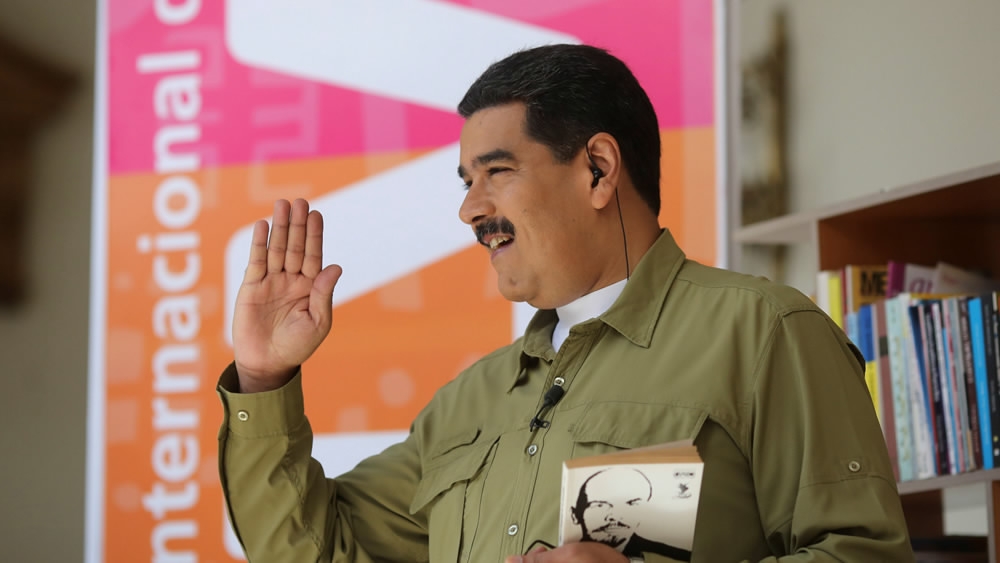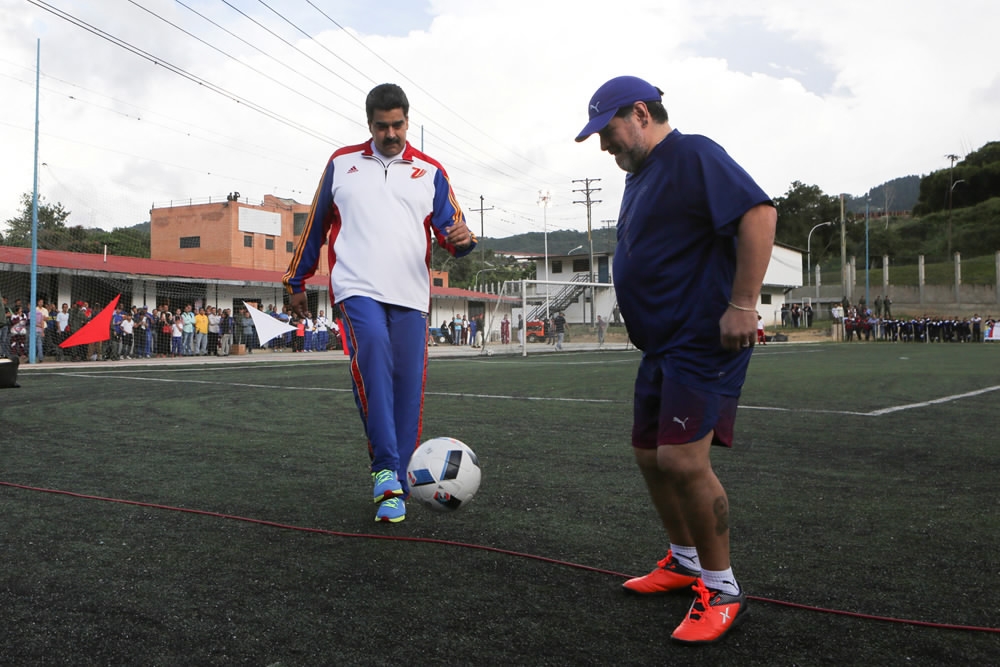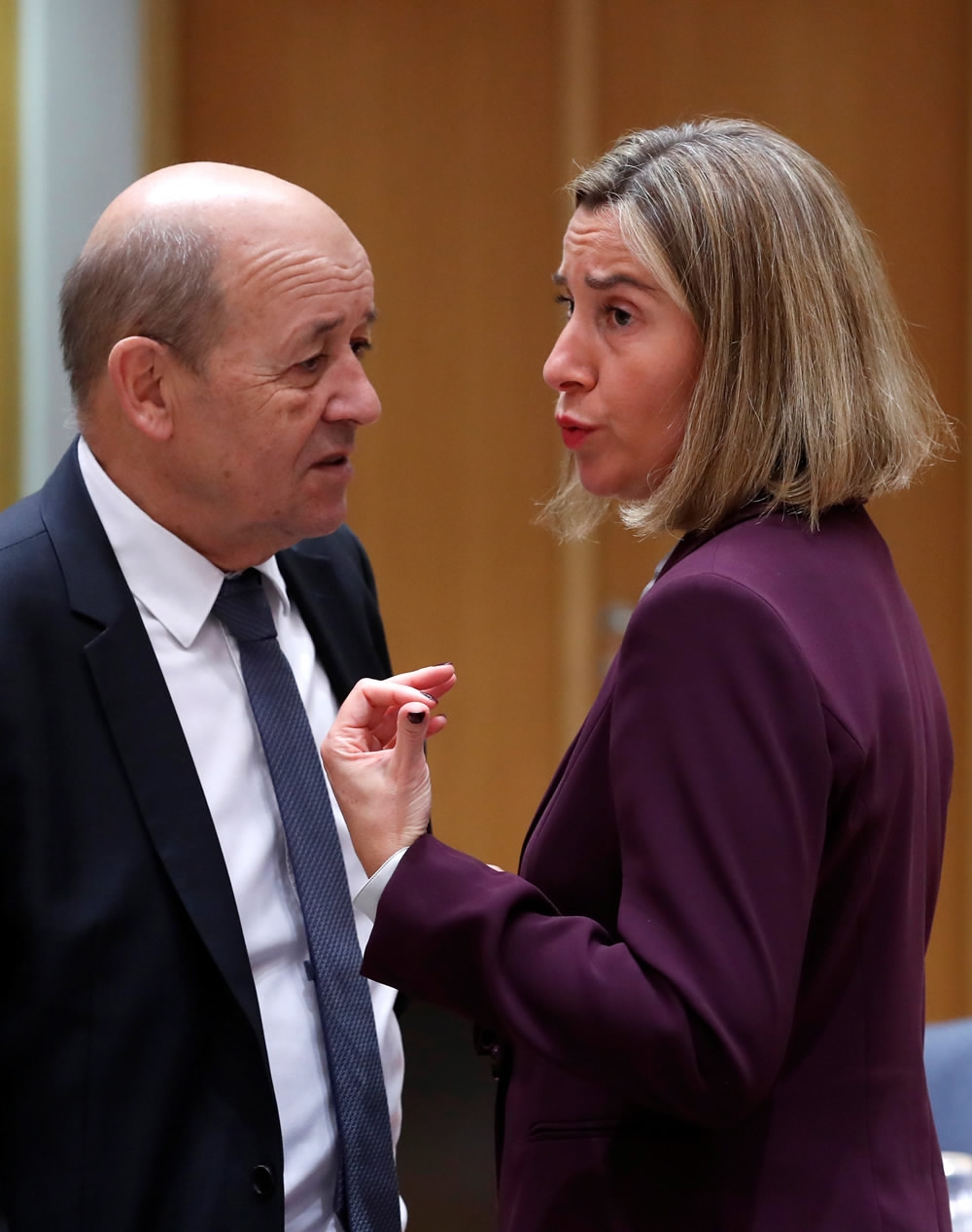
Politics
22:44, 13-Nov-2017
EU approves arms embargo against Venezuela
CGTN

European Union foreign ministers approved economic sanctions including an arms embargo on Venezuela on Monday, saying regional elections last month marred by reported irregularities had deepened the country's crisis.
Anxious not to push Caracas any closer to economic and political collapse as authorities there begin debt restructuring talks, EU governments held back from targeting any individuals.
The bloc instead left names for a later stage to try to persuade Venezuelan President Nicholas Maduro to calm the situation.

Venezuela's President Nicolas Maduro (L) attends a soccer practice with Argentine soccer legend Diego Maradona in Caracas, Venezuela, November 7, 2017. /Reuters Photo
Venezuela's President Nicolas Maduro (L) attends a soccer practice with Argentine soccer legend Diego Maradona in Caracas, Venezuela, November 7, 2017. /Reuters Photo
"Everything we do it aimed at seeking dialogue between the government and the opposition to find a democratic and peaceful solution," Spain's Foreign Minister Alfonso Dastis told reporters at a meeting with his counterparts where the sanctions decision was taken.
Venezuelan opposition leaders said last week they would resume efforts to hold dialogue with Maduro, even though he had previously used the talks to stall for time instead of implementing serious reform.
Spain has long pushed for sanctions on those close to the president, whom Washington slapped sanctions on in July, but the EU has been divided over whom to target.
The arms embargo adds Venezuela to an EU list that includes the Democratic People's Republic of Korea (DPRK) and Syria, where European defense companies can no longer do business and to which the sale of any goods deemed as being used for repression are also banned.

French Foreign Affairs Minister Jean-Yves Le Drian (L) and European Union Foreign Policy Chief Federica Mogherini attend an EU foreign and defense ministers' meeting in Brussels, Belgium, November 13, 2017. /Reuters Photo
French Foreign Affairs Minister Jean-Yves Le Drian (L) and European Union Foreign Policy Chief Federica Mogherini attend an EU foreign and defense ministers' meeting in Brussels, Belgium, November 13, 2017. /Reuters Photo
In a joint statement, all 28 EU ministers said the legal basis for individual travel bans to the European Union and the freezing of any Venezuelan assets in the bloc "will be used in a gradual and flexible manner and can be expanded."
The ministers said regional elections held in Venezuela on October 15 were a turning point that had hardened the bloc's position, having taken place amid "reported numerous irregularities."
The results appeared to favor Maduro's ruling Socialists, while polls had suggested the opposition would easily win a majority.
7970km
Source(s): Reuters

SITEMAP
Copyright © 2018 CGTN. Beijing ICP prepared NO.16065310-3
Copyright © 2018 CGTN. Beijing ICP prepared NO.16065310-3